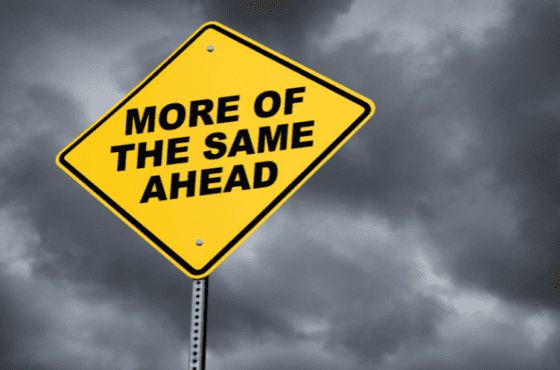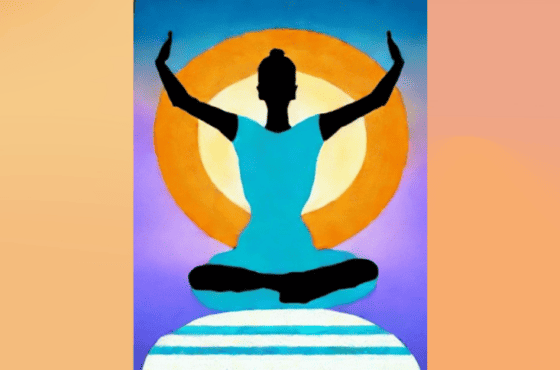How An Unhappy Marriage Affects You – Mentally & Physically
Unhappy marriage, unhealthy life! There is no doubt about it, humans are wired to be deeply affected by the moods and behaviors of our love partner. When those moods and behaviors tell you that you are not liked or loved, your health will be affected. Regardless of how liberated or self-sufficient you think that you are.
We are wired to need emotional connection. If you are single you may spread this need out among a few trusted family members or friends. But if you pair up, you will psychologically and biologically need that person to love you.
Behavioral scientists discovered the importance of pair bonding in the 1950s. John Bowlby was employed by the World Health Organization to investigate why so many infants who lost parents during the World War were dying, even though they were given food and clothing.
The answer, kids were not being held and lovingly interacted with. The term “failure to thrive” was developed to describe the biological wasting away of infants who were not emotionally cared for by a maternal figure.
Mary Ainsworth proved that children with insecure emotional connections with parents either became overly anxious or would emotionally shut down and become avoidant. Later in the 1970s, researchers Cindy Hazan and Phil Shaver discovered that adults also are anxious and avoidant when they are not securely emotionally connected to the person they pair bond with.
Since their discovery, thousands of researchers have been investigating emotionally disconnected marriages and how an unhappy marriage affects you and your mental and physical health.
Marriage Unhappiness and Mental Health.
While there are many ways an unhappy marriage affects you and your mental health I am going to lump them into three categories.
1. Post-Traumatic Stress Disorder (PTSD).
PTSD is often associated with life threatening events, like being in a war or auto accident. Scientists now know how psychologically devastating it is to be betrayed by the person you trust with every fiber of your being is. If this happens to you, your body will go into a hyper alert state to protect you from emotional annihilation.
Anxiety and feeling out of control will make you feel like you’re going crazy. And that will be incredibly debilitating. You will live in a constant state of fear of being betrayed again. Things that remind you of the betrayal can trigger you into a paralyzing fear response.
2. Increased Anxiety and Depression.
Attachment researchers like Alan Schore have discovered that our brains are wired to rely on the person we bond with to help us regulate our emotions. When you are feeling afraid, sad, or anxious you need the person that you love to have compassion about what you are going through. You will have problems with anxiety and depression if your emotional reaches are met with a blank stare, dismissal or even anger. Take a look at this powerful video.
It is common for people who are in unhappy marriages to shut down and become more depressed or to become very anxious. Both of these mental problems are ways that your brain will try to cope with the fear of not being emotionally connected with the person you love.
Anxiety is a high alert state that will cause you to always be asking for reassurance from your partner. You may be in a constant state of worry, which will make it difficult for you to relax, sleep or focus.
Reassurance for anxiety.
If you are an anxious person you need your partner to reassure you of his love and not dismiss you when you are feeling overwhelmed. The last thing that you need when you are anxious is to be told that you are emotionally exaggerating. This will only make you more anxious.
Instead, you want to be told by your partner that he understands. And that he feels sad about how much you are struggling with your anxiety. You also want to be reminded that you are loved and safe in your relationship.
Getting sad and depressed might be your way of coping with an unhappy marriage. This will cause you to turn inward and try to shut the world out. You will be perpetually sad and lose interest in doing fun things. And when depression gets worse, you’ll have problems with sleep, concentration, weight gain or loss and a lack of energy.
And if your depression gets bad enough you may have thoughts of wanting to die. This seems extreme but can be how an unhappy marriage affects you or your loved ones.
Emotionally Focused Couples therapy has been found to be helpful to both stop the cycle of the marriage conflict and to help the person who is depressed. Having a safe understanding partner is very healing for a person struggling with depression.
Unhappy relationships have little emotional attunement. This leaves one or both partners feeling that they need to manage their anxious or depressed emotions on their own.
The lack of emotional attunement also causes problems with identity and personality disorders.
3. Identity Problems and Personality Disorders.
From the time you were born, healthy identity was shaped by the caring reassurance of those you love. You learned to know yourself by the way you were reassured when you were sad, ashamed or afraid. When your parent tuned into your emotions and let you feel understood, you learned the relationship between how you felt and how your emotions were triggered.
Over time you learned how to ask for what you needed, rather than to cry when you were hungry. You knew that your legitimate hunger would be responded to be a loving parent. You learned to know yourself and interact with caring others who could meet your needs.
Children who are not emotionally validated often learn to be ashamed of having needs and the emotions that are triggered by them. They mistrust themselves and are afraid to let others take care of them. They often struggle with feelings of shame which have to do with not being good enough.
All of this creates problems with identity. Healthy identity requires that you know your needs and feel okay about letting others know that you are struggling and need help.
Healthy kids with secure identities have parents that are emotionally present to them after a bad soccer game or dance recital. Their parents encourage them to face their fears. They tell them it’s okay when they are hurt, fail or are mistreated. This is the foundation for healthy identity.
Any problems with identity that were formed in childhood are taken into marriage. Bringing identity struggles into a marriage will challenge the stability of your marriage. If your marriage becomes unhealthy it will make your identity problems worse.
Confidence and security.
As an adult, if your partner does not love and validate you, it will be nearly impossible to feel confident and secure.
If you were neglected or abused as a child this will be especially true. Child developmental trauma causes a whole range of personality disorders. Narcissism and Borderline personality disorders are two of the most crippling examples.
Researchers now know that humans develop internal working models of self, based on the way they are loved and cared for as children and adults. We’ve devoted an entire section to childhood attachment in our book, Emotional Connection.
Your view of yourself is formed by how you were and are related to by your most intimate relationships.
Post-Traumatic Stress Disorder, Anxiety and Depression, and Identity and Personality Disorders are some of the most common ways that an unhappy marriage affects you and your mental health. Not only is this incredibly disabling for the people in the marriage, but for the children of the married couple as well.
Marriage unhappiness will not only affect your mental health. It also can have a profound impact on physical health.
Marriage Unhappiness and Physical Health.
Your body is intricately wired to the health of your marriage. Adults can physically waste away when they don’t get the tender loving care they need. Just like infants do. Here’s how an unhappy marriage affects you and your physical health. Though there are many ways, I want to talk about three ways you may struggle physically if you are in an unhappy marriage.
1. Poor Cardiac Health
Studies have shown that being married is associated with fewer cardiovascular disease risk factors and with increased longevity. A long-term study of 2,000 people found that the odds of dying from a cardiovascular event were significantly higher for people who were divorced or never married.
Other studies have shown that unhealthy marriages have a negative impact on cardiovascular health. Relationships that are not healthy do not have the ability to prevent the progression of cardiovascular disease the way that healthy relationships do.
If you are in a satisfying marriage you are 3.2 times more likely to live after coronary artery bypass surgery. Relationship conflict and negative thoughts and feelings about the relationship over a 10-year period have been linked to higher mortality, even when controlling for age and blood pressure.
Profound Loneliness.
Most unhappy marriages cause profound loneliness. Louise Hawkley found that loneliness raises blood pressure and doubles the risk of both heart attack and stroke. James House found that emotional isolation is a more dangerous health risk than cigarette smoking or high blood pressure.
Researchers asked men with a history of angina and high blood pressure this question. “Does your wife show her love?” Those who answered “no” had twice the number of angina episodes over the next five years. Women who have unhealthy marriages have significantly elevated blood pressure. Women who have heart attacks are three times more likely to have another one if they are in an unhealthy marriage.
The list goes on as to how an unhappy marriage affects you and your physical health.
2. Weakened Immune System.
Your immune system will struggle to stay healthy if your marriage is unhealthy. Rejection by a partner, hostile fights and low marital satisfaction have been linked to increased inflammation problems, particularly in women.
In a fascinating study, researchers found that the more belligerent and contemptuous partners were, the higher were their stress hormones and the lower were their immune systems. The more hostile the fighting was, the longer it took for blisters (that the researchers created with a vacuum pump) to heal.
Your immune system works best when you are in a safe, loving supportive relationship. And your body knows what you need to survive and thrive. When you live in daily conflict it produces stress hormones that negatively affect your immune system making you more likely to get sick from all kinds of bacteria and viruses.
3. Increased Emotional and Physical Pain.
You and your emotional pain are greatly affected by an unhappy marriage. People struggle more with pain when they are emotionally disconnected from the person they love. Do you expect your soul mate to be there for you when you’re in pain? Most people do. You probably would not think twice about taking off work if your partner was in the hospital or was injured at home.
You may have thought that this is just the right thing to do. But maybe you haven’t considered that being connected and present actually lowers pain perception.
Couples who come in for therapy are often in more distress than people who show up in emergency rooms. A lot of therapists don’t feel competent to work with couples in conflict. It’s because they don’t know how to help regulate their acute emotional pain.
The threat of losing your first love, the place you live and complete access to the children you love is terrifying.
Removing the threat of loss will significantly decrease your emotional pain. And your perception of physical pain will lessen as well.
In a fascinating study, Dr. Sue Johnson studied a couple in conflict before and after couples therapy. Sue Johnson talks about this research in this video.
Using fMRI imaging Johnson found that the pain center of the brains of women in conflict were red hot during threat.
After Emotionally Focused Therapy and feeling connected to her husband, when threatened the brain barely lit up in the fMRI.
The same was true regarding her perception of pain. In the first condition she reported feeling a lot of pain. With the second condition she said she felt little pain.
Interesting that In both conditions the way that her partner comforted her was by holding her hand. When the couple was in conflict and she was disconnected from her husband, the hand-holding did not reduce her pain. When the couple was connected and holding hands there was a huge reduction in pain perception and less pain center brain activation.
An Unhappy Marriage May Be Your Greatest Health Threat.
Marriage or lifetime relationship unhappiness creates a cascade of problems that threaten your mental and physical health. The longer a couple stays in conflict, the worse the health problems get.
Couples who are secure and connected are actually healthier than people who live alone and do not have loving relationships.
If you are in an unhappy marriage there are great resources out there. Emotionally focused couple therapies have been scientifically proven to be effective in reversing the damage caused by marriage unhappiness.
What now?
So now you know how an unhappy marriage affects you and your mental and physical health. So what’s next?
The best advice I can give you is this. Learn more about how you can work together as a couple to soothe each other’s threatened emotions. Are PTSD, anxiety, depression or identity issues interfering with your happiness or your relationship? If yes, then please reach out for professional help. Emotionally Focused Couples therapy can be vital in helping prevent and manage the health problems associated with your marriage conflict. You can find a list of EFT therapists in your area at https://iceeft.com/find-a-therapist/.
I’m Dr. Michael W. Regier. I’m a clinical psychologist, Certified Emotionally Focused Couples Therapist and EFT Supervisor in Visalia and San Luis Obispo, CA, who, along with my wife Paula, co-authored Emotional Connection: The Story & Science of Preventing Conflict & Creating Lifetime Love.




